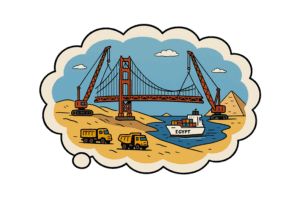The Yoruba language
An official language of Nigeria, Yoruba is spoken by approximately 20 million people in Nigeria and, to a lesser extent, in Benin.
Origins and History:
- The Yoruba Language is part of the Niger-Congo family of languages.
- It is one of the most prominent spoken African languages in the world.
- Its origins trace back a thousand years to the Yoruba people, known for their rich cultural and religious practices.
- The written form of Yoruba was developed during the 1850s with the Latin alphabet by Yoruba and European missionaries.
Number of Speakers:
- There are about 20 to 30 million native speakers, making Yoruba one of the most widely spoken African languages.
- Additionally, millions more people worldwide understand and speak it as a second language due to diaspora.
- While the language is primarily spoken in Nigeria and Benin, smaller Yoruba speaking populations exist in various parts of Europe, America and Africa.
Official Language Status:
- Yoruba holds official language status in Southwest Nigeria and is recognised in Benin and Togo.
- It’s also taught in various academic institutions outside Africa, especially in the United States and the United Kingdom.
Usage:
- The Yoruba language is taught in school systems and universities in Nigeria.
- Yoruba is used widely in various social contexts in regions where it’s spoken.
- It’s employed in daily communication, media broadcasts, religious rituals, literature, music, and even films, particularly in the Nollywood industry.
- The Yoruba language is also integral to the practice of the Yoruba religion, which is influential in the Caribbean and South America due to the historical African diaspora.
Here is a Yoruba proverb: “Bi a ba n gunyan ni’le aiye, a o ni fi oju kan orule.” Its English translation is: “If we make our bed comfortably on earth, we will not look longingly towards heaven.”
Yoruba Words in English and English Words in Yoruba:
- With the impact of British colonial rule in Nigeria, numerous English words have found their way into Yoruba. Examples include “bọọlu” (ball), “tẹlifọọnu” (telephone), and “kọmpútà” (computer).
- Conversely, Yoruba has contributed to English, mainly via African diaspora communities. For instance, “bungalow” is thought to originate from the Yoruba word “búngálò,” referring to a type of building. The music term “jujú” also comes from Yoruba, describing a specific music style.
As Yoruba is a tonal language, where words mean a different thing depending on the tone in which they are said, English speakers tend to find it a challenging language to master. Previously written in an Arabic-based alphabet, Yoruba now uses a Latin-based script.
The Yoruba language reflects the rich culture and history of the Yoruba people.
Its broad reach and influence in Africa and globally affirm its importance in the world’s linguistic landscape.
Our translation services - FAQ
Do you use native translators?
Yes, always. All our translators are native speakers and most are still resident in their native country. We pride ourselves on ensuring that all Brightlines’ translators are native. We do not accept applications from non-native candidates or allow them to register on our online recruitment database. All our translators are rigorously tested.
How long will the translations take?
The turnaround for the translation will depend on the word count. As a rough guide, assume that the translators can comfortably process about 2500 words of non-specialised text per day. Proofreading can effectively be completed on a basis of 4000-6000 words a day. Our minimum turnaround time is usually about three days, although it is possible to shorten this if you are in a rush for the final files and we will always be happy to discuss this with you.
What is the variation in your translators’ experience and qualifications? Are they native speakers? Will the cost increase if we use a more experienced translator?
All our translators have to go through a series of tests to make sure they are as good as they say they are, and only if they pass are they allowed to work for Brightlines. There is quite a range of experience and qualifications, but all translators have a minimum of five years’ experience. All translators translate into their mother-tongue without exception and are generally based in-country so they are up-to-date with the local language. We match translators with projects/clients depending on the subject matter, and most of our translators have industry experience in their speciality – there is no better experience than being immersed professionally in the industry they specialise in. Our costs are based on translator experience, speciality (i.e. medical, creative, scientific) and the language choice.
Which languages can you translate into?
We have an extensive database with hundreds of trusted and tested translators covering all commercial languages. If you cannot see the language or dialect you need please ask.
I don’t know the word count; can you base the quote on the number of pages?
Our pricing structure is based on a rate-per-word, but we can estimate from a page count. If we can’t see the source document then we would usually estimate between 300 – 500 words a page depending on the density of the text and the presence of photos and images.
Does the translation need to be proofread?
Brightlines is an ISO 9001:2015 certified company. This means that quality is safeguarded. We adhere to the “four-eyes principle” and translations are always checked by a second professional proofreader (who is not the translator). If the translation is for internal use and reference purposes only (i.e. not to be published, distributed or used in a court of law), or you simply don’t wish to have proofreading, we can remove the proofreading stage.
Get in touch
If you need Yoruba translations, get in touch with our team, or get a quick quote.






